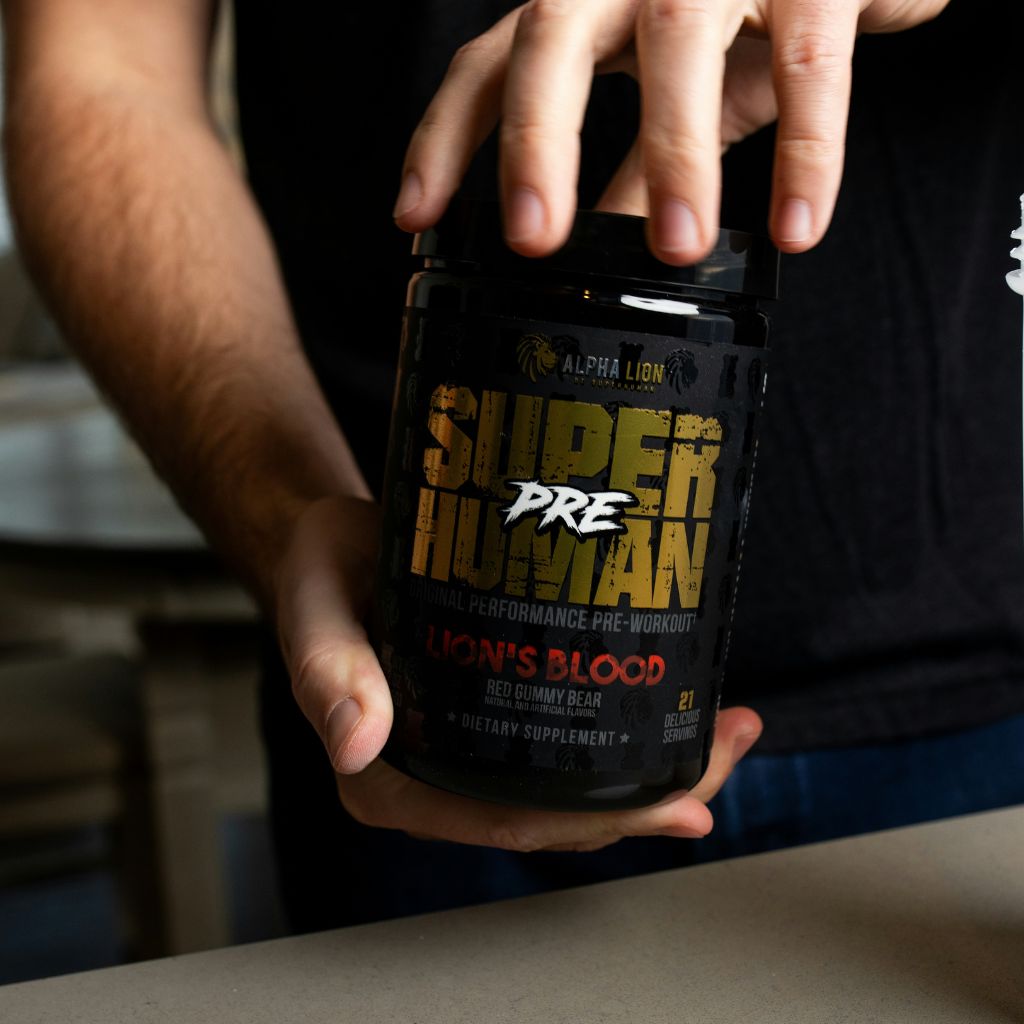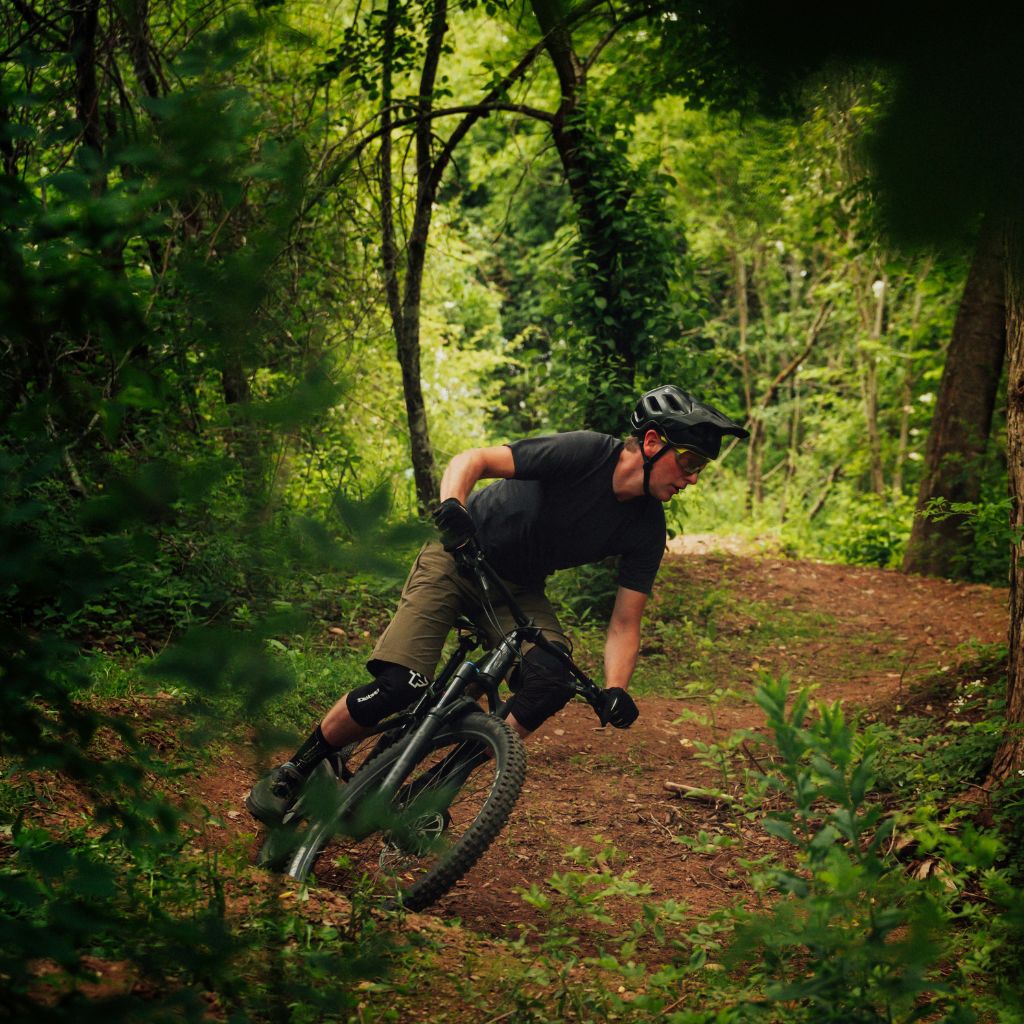I’ve built out a home gym in my garage, and enjoy lifting weights regularly. Over the years I’ve tried a variety of different supplements to help with muscle building and strength training – including a few types of pre-workouts supplements.
I’ve never taken pre-workout drinks before going mountain biking, but I know some riders do, and love it.
Let’s dig into whether they’re beneficial for this, our beloved high-intensity sport of MTB.
Pre-workout supplements, typically a mix of caffeine, amino acids, and other performance-enhancing ingredients, are designed to boost energy, improve endurance, and enhance focus.
Given the demanding nature of mountain biking, it’s worth exploring how these supplements can impact your ride.
Key Components of Pre-Workout Supplements
- Caffeine: A common ingredient, caffeine stimulates the central nervous system, potentially improving reaction time and reducing fatigue. However, sensitivity varies, and too much can lead to jitteriness or heart palpitations. I know this from experience!
- Beta-Alanine: This amino acid helps combat muscle fatigue, possibly allowing for more intense and longer rides. However, it can cause a tingling sensation in higher doses.
- Creatine: Known for enhancing strength and power, creatine can be beneficial in short, intense bursts of activity, most notably intense weight training sets. Some would argue that mountain biking climbs and other physically demanding moments in the sport could benefit from this too.
- Nitric Oxide Precursors (e.g., L-arginine, L-citrulline): These compounds help increase blood flow, potentially improving oxygen delivery to muscles during intense cycling.
- B-Vitamins: Often included for their role in energy metabolism, B-vitamins can support overall energy production.

Understanding the Role of Nutrition in Mountain Biking
Nutrition plays a pivotal role in mountain biking performance.
A diet rich in carbohydrates, proteins, and healthy fats is crucial. (Many mountain bikers would say that craft beer is also a requirement, but that is a discussion for another day 😀 ).
Carbs are essential for energy, while proteins aid in muscle repair and recovery. Healthy fats provide sustained energy for long rides. Supplements should complement, not replace, a balanced diet.
Evaluating the Need for Supplements
When considering pre-workout supplements, you’ve really got to honestly assess your dietary intake and the demands of your biking.
Supplements might offer additional benefits if your diet lacks certain nutrients or if you need an extra energy boost for particularly challenging trails or endurance rides. A lot of riders do drink coffee before heading out for that boost, so that points to at least some benefit possible.
Potential Benefits of Pre-Workout Supplements for Mountain Biking
- Enhanced Energy and Stamina: Supplements can provide a quick energy boost, helping you feel more alert and energetic at the start of your ride.
- Improved Concentration: Ingredients like caffeine can enhance focus, which is crucial for navigating technical trails and maintaining safety.
- Increased Endurance: Some ingredients may help delay fatigue, allowing for longer and more intense rides.
Risks and Considerations
- Side Effects: Potential side effects include jitteriness, increased heart rate, and gastrointestinal issues. Individual reactions can vary greatly. Definitely not a great feeling if you’re out on the trail and find you have a sudden need to find a toilet!
- Long-term Health Impacts: The long-term effects of regular consumption of high-stimulant supplements are not fully understood… but it’s unlikely to be good.
- Dependency and Tolerance: There’s a risk of becoming reliant on supplements for performance, along with the potential for increased tolerance, necessitating higher doses for the same effect. Everyone who has consumed multiple strong cups of coffee a day for months or years on end, and then missed a day will have felt how strong that dependency becomes over time.

Safe and Effective Use of Pre-Workout Supplements
- Start with a Lower Dose: Begin with a smaller dose to assess tolerance and avoid potential side effects.
- Timing is Key: Time your supplement intake to align with your biking schedule for optimal benefits.
- Choose Reputable Brands: Opt for products with clear labeling of ingredients and avoid those with proprietary blends where exact amounts are not disclosed.
- Consult Health Professionals: Before starting any supplement, especially if you have underlying health conditions or are taking other medications, consult with a healthcare provider or a sports nutritionist.
Personal Experience and Anecdotal Evidence
From personal experience and discussions with fellow mountain bikers, the effectiveness of pre-workout supplements varies.
Some riders swear by them for an extra edge, while others prefer to rely solely on diet and natural energy sources.
I myself am in the latter camp personally. For me it is all about long lasting fuel (good food) to get my energy for a ride, and also that caffeine tends to mess with my stomach a bit, which I don’t want when I’m out riding! But each to their own, I can see why some riders love taking pre-workouts before heading out on the trails. 🙂
The Role of Diet and Training
As they say, no supplement can replace the benefits of a well-rounded diet and proper training.
Focus on a balanced diet, adequate hydration, and a tailored training regimen to enhance your mountain biking performance. And I say this as someone who is very self-aware that my own diet and training need attention, I’m far from perfect.
I take a range of vitamins and minerals each day to keep my body healthy, in addition to eating a pretty balanced diet full of meat and vegetables – and before I go riding I make sure I’ve had a good breakfast or other meal so that I’ve got plenty of energy in the tank.
I also take a bunch of bars and other high energy food sources in my backpack to refuel throughout a days riding.
The bottom line…
While pre-workout supplements can offer certain benefits for mountain biking, they should be used judiciously and as part of a broader approach to fitness that includes diet, training, and rest.
Always prioritize safety and long-term health over short-term gains.
Remember, the best fuel for your rides comes from a combination of good nutrition, proper training, and the sheer passion for the sport.
See you on the trail!

